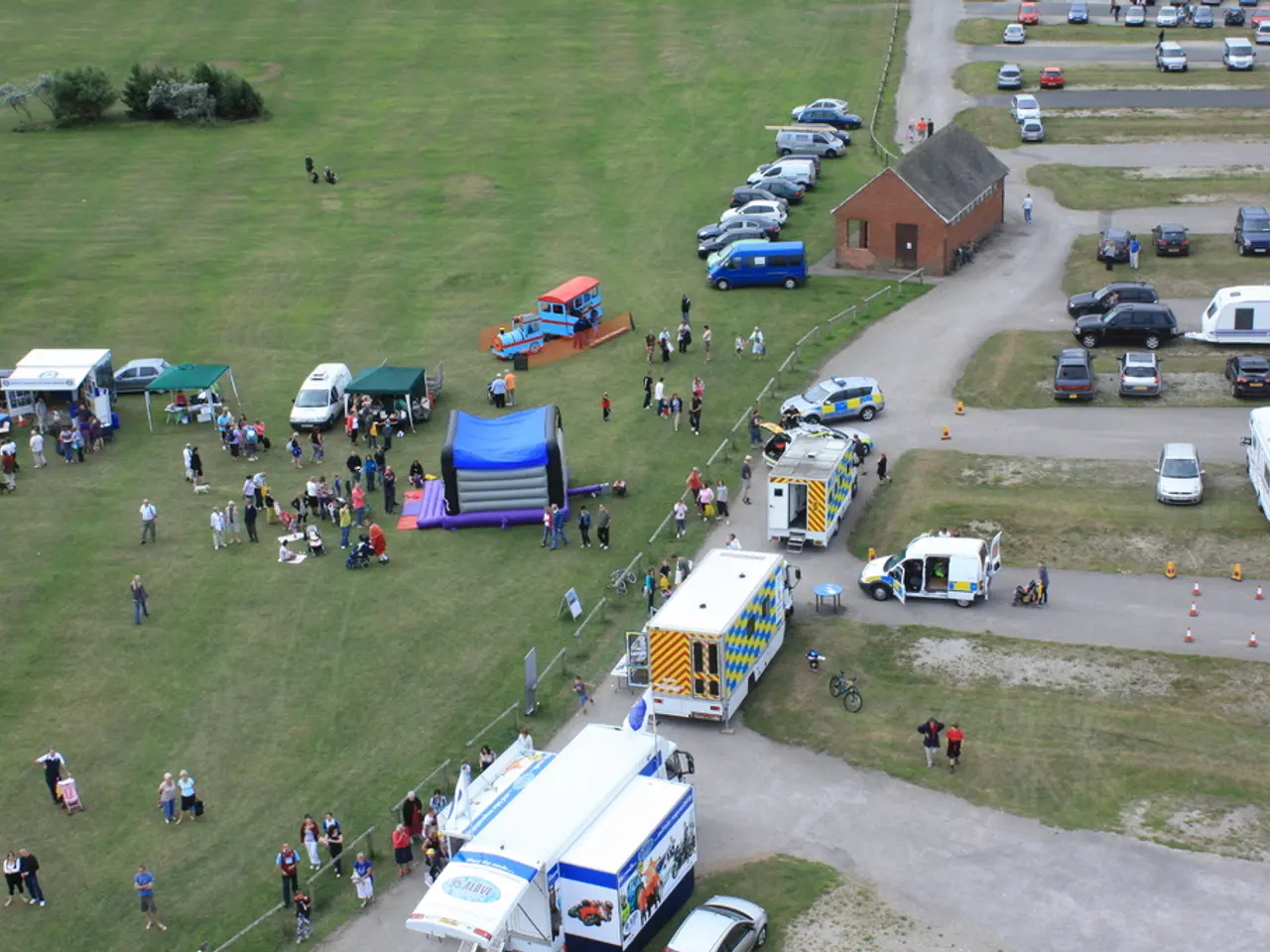Life in a Camper: Unveiling Six Real-Life Scenarios of Combining Travel and Work
In the heart of the American countryside, a unique lifestyle is gaining traction. Known as Work-Camping, this way of living combines work and travel, offering a sense of freedom but also presenting logistical challenges.
One such Work-Camper is Kathy White, a 66-year-old woman who calls a 30-foot Itasca Sunstar travel trailer her home. Kathy, like many other Work-Campers, travels across the USA, taking up seasonal jobs at campgrounds and parks.
Victoria Childers, a remote customer service representative for a software company, is another Work-Camper. She, along with her partner, Lamont Landrum Jr., have been traveling across the country since 2021, living in a renovated 1992 Tiffin Allegro motorhome.
Patty and Shane Gill, another Work-Camping couple, have sold their house and most of their belongings to live full-time in their travel trailer. They have been performing unpaid work in exchange for free campsites, meals, and laundry. Their primary source of income comes from Shane's Air Force retirement and supplementary earnings from social media.
The group of Workampers in the United States is part of WWOOF USA, a branch of the worldwide WWOOF network, which spans over 132 countries. The exact number of WWOOF USA members is not specified, but it is a growing community.
Laurie and Matt DuShane, another Work-Camping couple, live in a travel trailer and use it as their primary residence. They face logistical challenges, including jobs falling through and their trailer breaking down. However, they argue that they fight hard to make Work-Camping work, despite potential challenges such as lack of income and health insurance.
Many Workampers are older volunteers who trade work for a campsite and utilities. Dave Hatton, a landscape photographer, bought a tiny travel trailer for $2,800 to live in for days or weeks at a time, discovering his passion for photography during the pandemic. He works seasonal jobs, such as maintenance and cleaning on campgrounds.
Kathy White travels to various locations in the USA, including Mount Rushmore, the New York Hudson Valley, South Texas, and Kentucky. Despite her travels, she is currently looking for one or maybe two places to settle down, but hasn't found the "perfect spot" yet. Her requirements are tough to meet.
Today, both Childers and Landrum work as seasonal campground workers. Laurie and Matt DuShane work seasonal jobs, such as administrative tasks, helping visitors, and cleaning cabins. They argue that the challenges they face are worth it for the freedom and adventure that Work-Camping provides.
In conclusion, Work-Camping offers a unique lifestyle for those seeking freedom and adventure. While it comes with logistical challenges and may not always be cheaper than living in a traditional home, it provides an alternative way of living for many, offering a sense of community and a chance to explore the beauty of the USA.
Read also:
- Peptide YY (PYY): Exploring its Role in Appetite Suppression, Intestinal Health, and Cognitive Links
- Toddler Health: Rotavirus Signs, Origins, and Potential Complications
- Digestive issues and heart discomfort: Root causes and associated health conditions
- House Infernos: Deadly Hazards Surpassing the Flames








